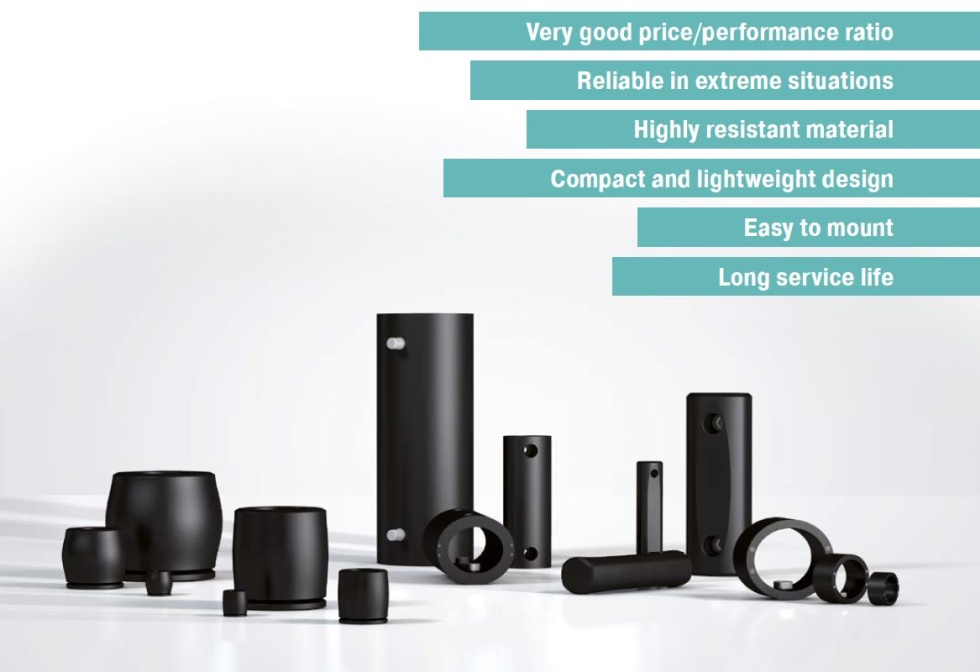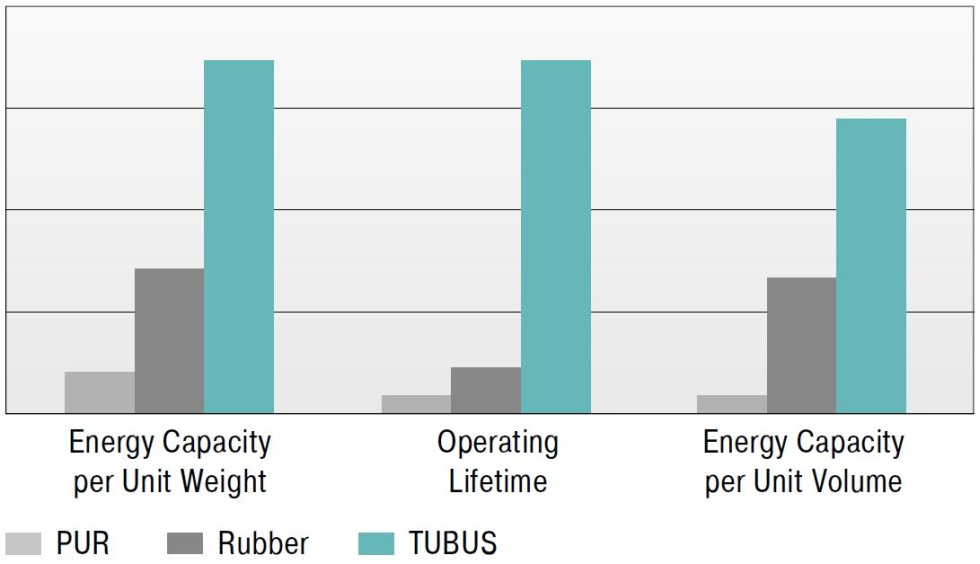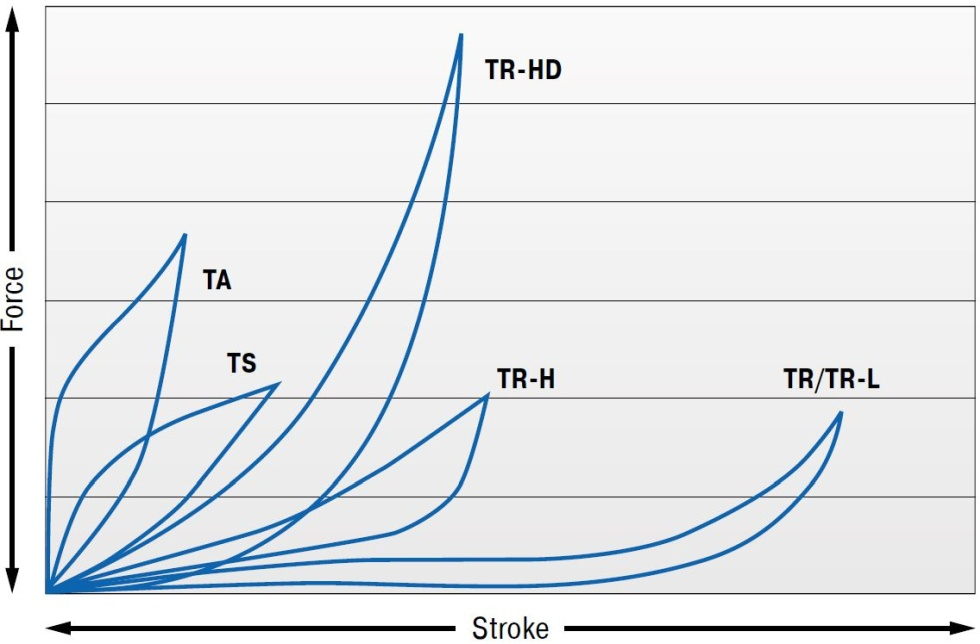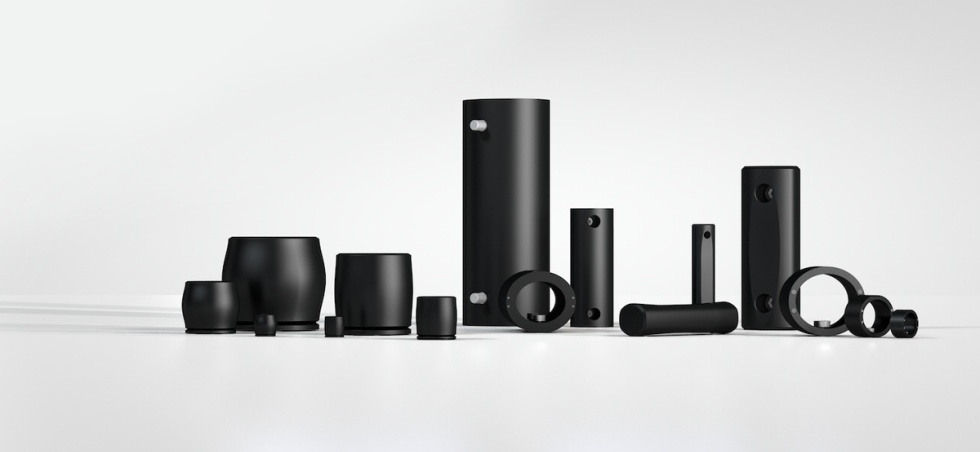They are also recommended for use if there is little installation space available. Manufactured in co-polyester elastomer, the highly resistant absorbers provide the best benefi ts in areas where other materials fail or where a similarly high service life of up to 1 million load changes cannot be achieved. They are affordable, compact and light and absorb the energy with different damping characteristics depending on the design.

Physical Properties of TUBUS Profile Dampers
ACE TUBUS profile dampers are high performance damping elements made from a special Co-Polyester Elastomer. They have a high energy absorbing capacity compared with other materials.
The excellent damping characteristics are achieved as a result of the special elastomer material and the worldwide unique construction design. This enables us to change the characteristics of the elastomer material so that individual and distinct damping curves are possible.
TUBUS dampers offer a considerable performance advantage when compared to other materials such as rubber, urethanes (PUR) and steel springs.
A further advantage compared to other damping elements is the operating life expectancy – up to twenty times longer than with urethane dampers, up to ten times longer than with rubber dampers and up to five times longer than with steel spring dampers.

Comparison of Damping Characteristics
The innovative TUBUS dampers absorb energy while exhibiting the following damping characteristics:
Product family TA
Degressive characteristic with max. energy absorption with min. stroke.
Energy absorption: 58 % to 73 %
Product family TS
Almost linear characteristic with low reaction force over a short operating stroke.
Energy absorption: 35 % to 64 %
Product family TR/TR-L/TR-H
Progressive characteristic with gradually increasing reaction force over a long stroke.
Energy absorption TR: 25 % to 45 %
Energy absorption TR-L: 26 % to 41 %
Energy absorption TR-H: 39 % to 62 %
Product family TR-HD
Progressive characteristic with high energy absorption with a short stroke.
Energy absorption: 43 % to 72 %
 Characteristics of dynamic energy absorption for impact velocity over 0.5 m/s.
Characteristics of dynamic energy absorption for impact velocity over 0.5 m/s.
For impact velocities under 0.5 m/s, please request a static characteristic curve.

